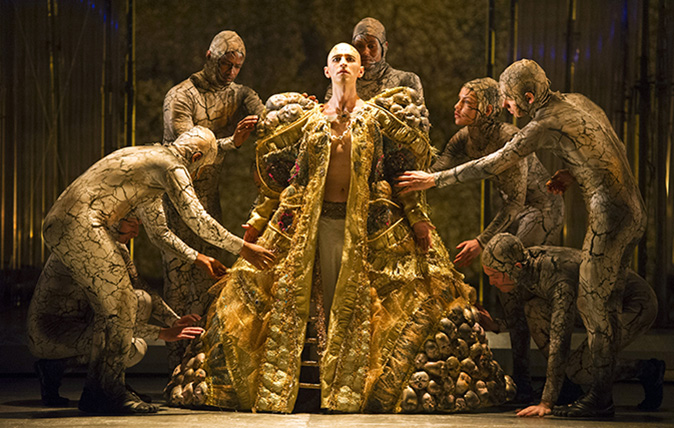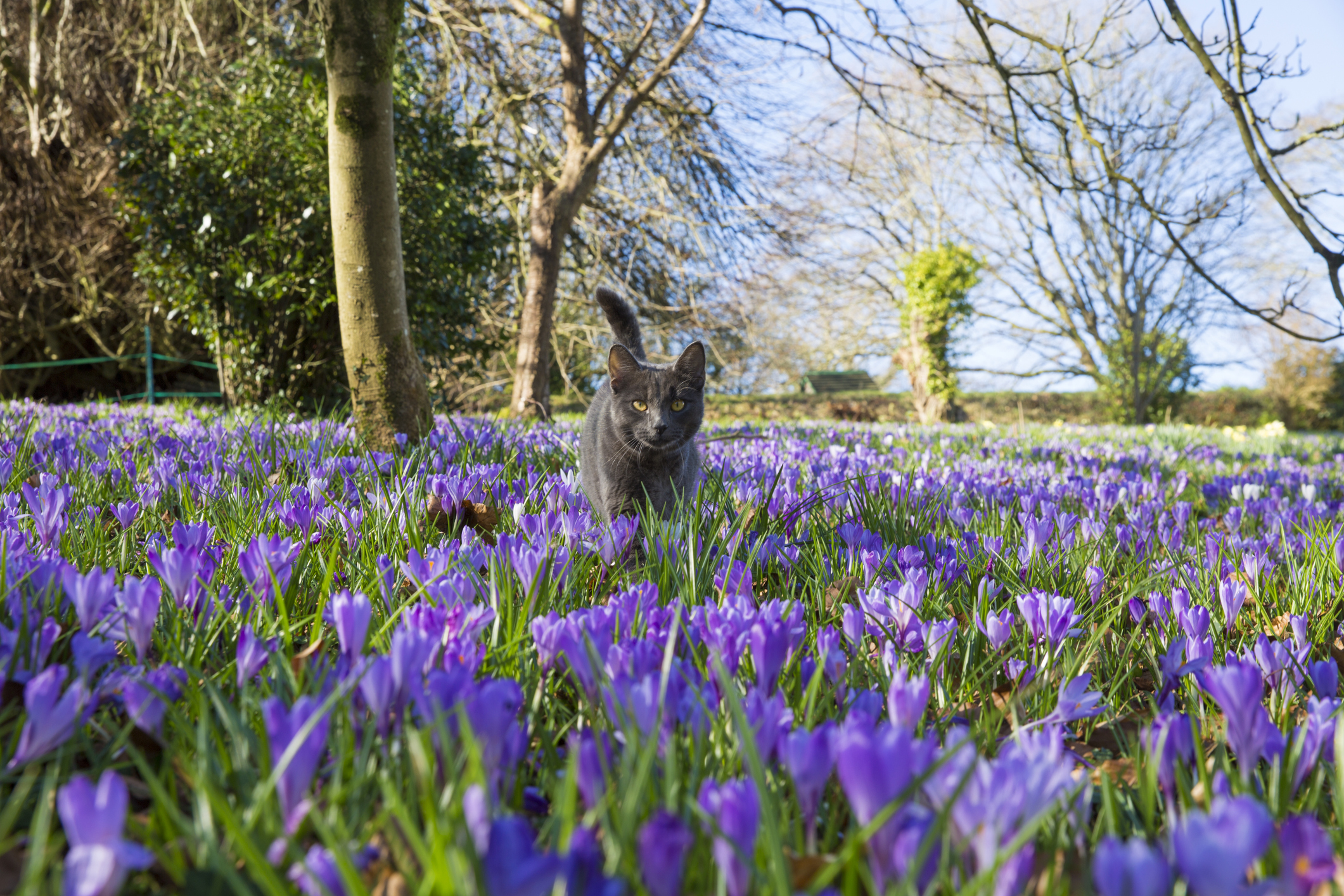Akhnaten at the London Coliseum
Akhnaten has been revived at English National Opera after more than 30 years.

High above the ground, a line of seated figures materialises from the shadows. Suddenly and very slowly the figures move, imprinting the rigid lines and angles of their bodies on the surrounding space like a stone frieze in action. Then they start to juggle, reenforcing the score’s intricate overlapping rhythms with the balls in their hands.
This mysterious ensemble opens Philip Glass’s opera Akhnaten, revived at English National Opera after more than 30 years, and flows almost continuously through its three hours. The complicated narrative, pared to its essential elements, traces the birth, coronation, overthrow and death of the 18th Dynasty pharaoh who imposed a monotheistic state religion on Egypt in the 15th century B.C. Delivering words derived from original texts, Akhnaten, his wife Nefertiti, his mother and daughters, priests and the people of Egypt, sing in Egyptian and Hebrew.
No one uses English except Akhnaten and the Scribe, who speaks without singing, and no surtitles are projected. So only the music and the meticulously choreographed staging allow us access the characters’ feelings and behaviour.
Articulating Glass’s irregular rhythms and tangled harmonies, often wordlessly, the singers walk and gesture in ceremonious slow motion, conjuring drama from our anticipation, and all the movement adds body to the repeated musical patterns, realising their minutely shifting tonalities in physical form.
The jugglers handle both small and large balls in the air or on the ground and toss Indian clubs into a symmetrical storm of excitement. They manipulate flexible wings, first in measured unison, then in a whirling flurry around Akhnaten. They slide silently into view on their backs, wriggling like inchworms, and crawl past the embalmed pharoah in the final scene as he drops one last ball among the others they propel past him, clearing the stage of lost civilizations.
It’s not inspired juggling, nothing flashy, but including them was an inspired decision that lends maximum effect to the minimalist score. Jugglers decorated Egyptian tombs where, a museum curator has explained, “round things were used to represent solar objects, birth and death.”
As for stagecraft, George Balanchine urged the public to “see the music and hear the dancing.” Amazingly, this production’s director, Phelim McDermott, the conductor Karen Kamensek, the skills ensemble choreographer Sean Gandini, and the exceptional cast enable us to do precisely that.
Sign up for the Country Life Newsletter
Exquisite houses, the beauty of Nature, and how to get the most from your life, straight to your inbox.
Akhnaten remains in repertory until 18 March at the London Coliseum. Don’t miss it. www.eno.org.
Image from the English National Opera. Copyright Richard Hubert Smith.
-
 The King's favourite tea, conclave and spring flowers: Country Life Quiz of the Day, April 22, 2025
The King's favourite tea, conclave and spring flowers: Country Life Quiz of the Day, April 22, 2025Tuesday's Quiz of the Day blows smoke, tells the time and more.
By Toby Keel
-
 London is the place for me* (*the discerning property buyer)
London is the place for me* (*the discerning property buyer)With more buyers looking at London than anywhere else, is the 'race for space' finally over?
By Annabel Dixon